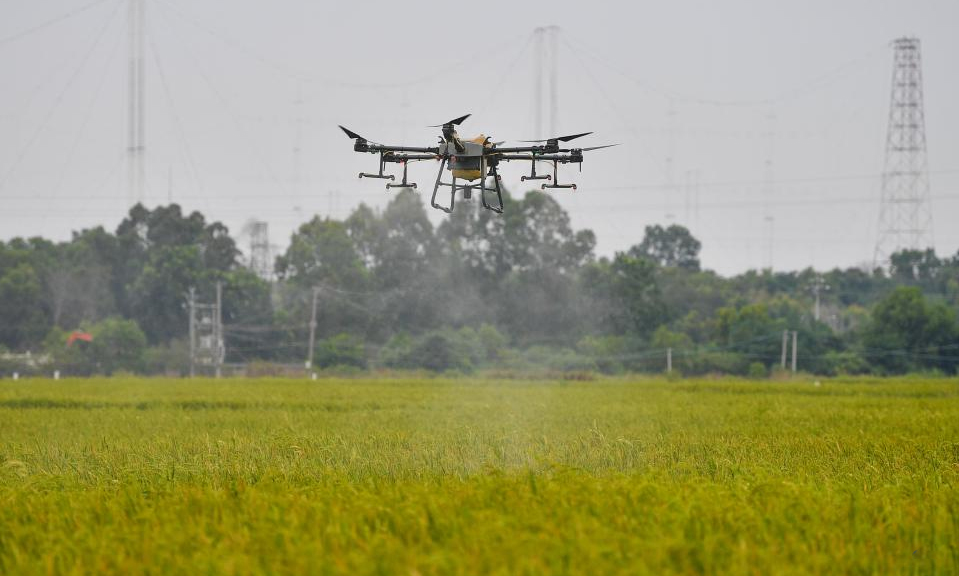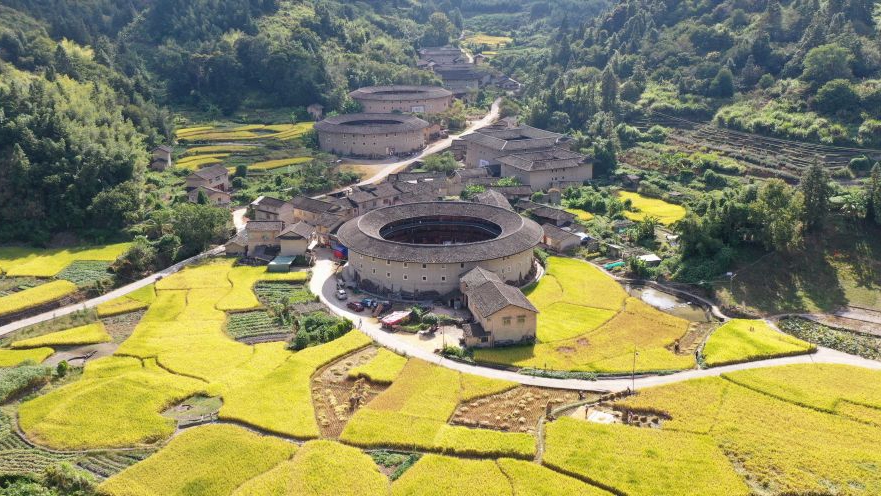Communities call for just transition to renewable energy resources without destructive mining
RENO, the United States, Oct. 17 (Xinhua) -- People from international frontline communities affected by mining have called for a truly just transition to renewable energy sources without destructive mining.
They made the appeal at a conference held in Reno, the western U.S. state of Nevada, from Friday to Sunday, which focused on energy transition and the role of mining.
The biennial conference, organized by the Western Mining Action Network, called for attention to the U.S. largest lithium mining project, the planned Thacker Pass lithium mine.
The proposed lithium clay mining development project, one of the largest in the world, is located in Humboldt County, about 25 miles from the Nevada-Oregon border.
During the conference, about 200 participants from mining-affected communities and allies working in legal aid, scientific support, and environmental groups discussed topics such as efforts to save the Peehee Mu'huh sacred site from proposed lithium mining, mining for energy transition technologies, and mitigating climate change.
"The conference has provided opportunity to share experiences and develop ways to prevent or minimize damage to the environment and cultures due to mining operations," John Hadder, director of Great Basin Resource Watch, one of the environmental groups filing lawsuit against the mining project, told Xinhua in an interview.
"Mining imposes significant stress on frontline communities and people often feel isolated. The conference is also a solidarity event where people receive support from others at the event, share common experiences, and build alliances to collectively motivate mining reform and prevent mines from polluting communities' air, water, and land," he noted.
The planned lithium mine is designed to cover nine square miles of public land and operate on one of the largest lithium deposits in the United States, according to the Nevada Division of Environmental Protection.
Lithium Americas, a mining company, received a permit from the U.S. Bureau of Land Management to develop the mine in January 2021. But the project has run into fierce local opposition.
Soon after the permit was issued, several lawsuits were filed in federal court seeking to slow or halt the project. The lawsuits claim that the land is sacred ground for American Indians and argue that the project will damage the local environment.
"Modern large-scale mining is very destructive to the natural ecosystems and often disruptive to hosting communities," Hadder said.
It is essential that the citing of mining operations be done carefully, judiciously, and in a manner that allows for the full range of consequences of the proposed mine to be fully explored and addressed, Hadder told Xinhua.
Conference participants called for developing a vision for a future with a truly just transition to renewable energy sources, without the need for destructive and disruptive mining.
Such vision includes reducing demands for materials and energy, promoting unbiased assessment of mining proposals for front-line communities, recognizing that indigenous communities have the right to say no, and addressing climate change from a holistic and environmental justice perspective, according to Hadder.
Photos
Related Stories
- Nation leads way with renewable energy
- World must triple investment in renewable energy: UN report
- Feature: Chinese enterprise helps renewable energy transition in Jordan
- Chinese firm holds online seminar on renewable energy in South Africa
- China's installed renewable-energy capacity up in July
- UN chief calls for speedy transition to renewable energy
- China's renewable energy capacity up in 2021
Copyright © 2022 People's Daily Online. All Rights Reserved.









